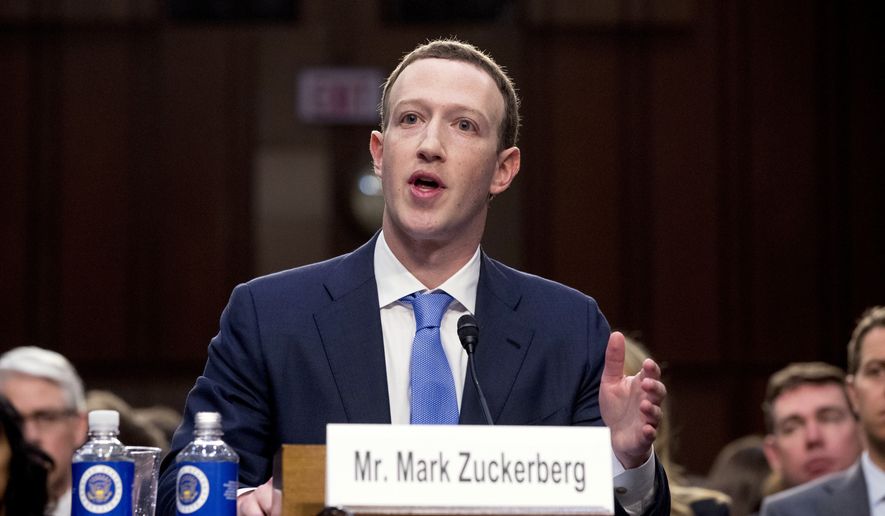Facebook founder Mark Zuckerberg admitted Tuesday that his company made mistakes, but his lawyers are insisting they have no liability for mishandling millions of people’s most personal data.
Facing multiple lawsuits, including a new class-action complaint this week, Facebook says it followed the law, its own rules and a previous settlement with the U.S. government closely enough that it can’t be held liable.
“Facebook broke no laws and violated no legal duties,” said Facebook’s lawyers from Gibson Dunn in a filing Friday, as lawyers tried to figure out how to handle more than a dozen cases already filed in the wake of revelations that the company’s data was harvested and used by a political consultancy with ties to the Trump campaign in 2016.
Many of the 87 million users whose data was collected by Cambridge Analytica say they felt blindsided by it, saying they had thought that violated the privacy assurances Facebook had made.
The data came from users who took a personality quiz from an app developer, Aleksandr Kogan. Mr. Kogan then shared the users’ data with Cambridge Analytica, which Facebook says was against its policies.
Mr. Zuckerberg said they confronted both Mr. Kogan and Cambridge Analytica in 2015, and both told Facebook they would delete the data. The companies didn’t do that, he said, admitting Facebook shouldn’t have just taken their word that they would.
SEE ALSO: Mark Zuckerberg apologizes for Facebook abuses
The lawsuits claim Facebook violated consumer protection laws, the Stored Communications Act, the Wiretap Act and state privacy laws.
The cases primarily allege Facebook didn’t do enough to protect its users from a third-party’s wrongdoing.
“We didn’t take a broad enough view of our responsibility, and that was a big mistake. It was my mistake, and I’m sorry,” Mr. Zuckerberg told two Senate committees who spent hours questioning him Tuesday.
Tracy Pearl, a law professor at Texas Tech University, said Mr. Zuckerberg’s apology doesn’t create a legal liability for what happened with Cambridge Analytica.
“I think that’s a nice thing for him to say, but undoubtedly he has been prepped by his lawyers,” Ms. Pearl said.
In order to prevail in their lawsuits, Facebook users will have to prove the data breach was foreseeable and Facebook should have acted differently than it did.
Ms. Pearl said it’s difficult to have foreseen an app developer of a personality quiz leading to the sharing of users’ data with a company working for a presidential campaign.
“It’s not that I think the plaintiffs are definitely going to lose,” she said. “I think they just have a lot on their plate to prove.”
Paul Rosenzweig, a law professor at George Washington University, said the users will have to show they suffered damages or economic loss from the incident.
“The courts don’t tend to pay off on the ’wow, that pissed me off and I’m hurt’ kind of thing,” Mr. Rosenzweig said.
“I haven’t read of anybody who actually suffered monetary damage because of Facebook,” he said.
The lawsuits are still in the early stages, with the complaints not yet having been answered, and there’s a possibility the users’ lawsuits could be consolidated under one judge at the Northern District of California, where Facebook has headquarters and the majority of witnesses are located.
“All of these class-action lawsuits come down to liability and damages. Zuckerberg has partially consented to liability. But Facebook will likely argue that a ’mistake’ isn’t the same as a violation of the law. It’s a technical but important distinction,” said Andrew Stoltmann, a trial lawyer based in Chicago.
Mr. Stoltmann said Facebook doesn’t face significant liability on the class-action front because those type of lawsuits typically settle for small sums.
He points to Target’s data beach lawsuit in 2015, where more than 60 million people had their information stolen. Target settled its lawsuit for roughly $10 million.
“Proving damages in these cases is usually tough,” he said.
• Alex Swoyer can be reached at aswoyer@washingtontimes.com.




Please read our comment policy before commenting.